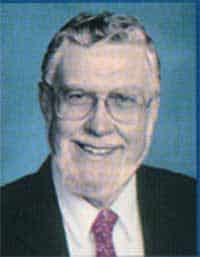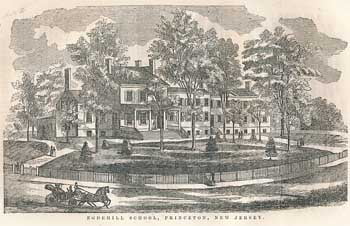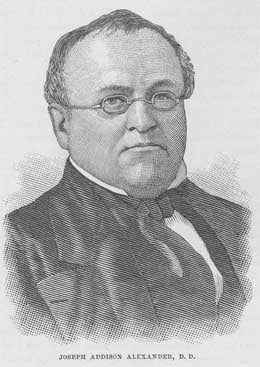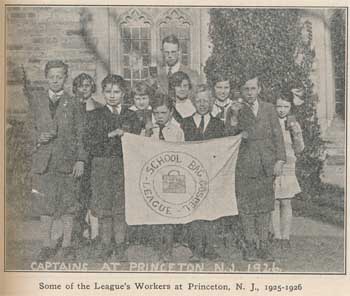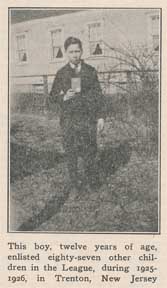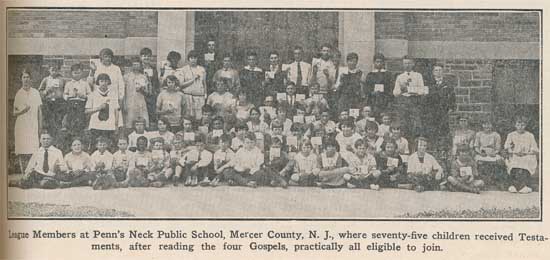What a blessing to come to the end of ourselves, to rest in His every provision and in His loving care.
“…We may learn for our use, first, to admire this wisdom and goodness of God who will thus have us know and experientially feel what we are—even creatures, poor, beggarly, indigent, miserable, and helpless as to ourselves. We know not, neither do we consider, what goodness lies wrapped up in our necessities, distresses, miseries, wants and hardships. But we are ready to complain and quarrel with the Most High.
We consider not how the Lord is thereby driving us to our thrift, giving us new proofs and documents of our being indigent creatures and new convictions of the necessity of constant living in dependence on the Lord our maker, and of hanging on Him and waiting at His door for constant supplies of all. And oh, what a blessed life is this to be under this happy necessity of depending for all our wants, small and great, on God! What a rich trade is this, that we are made to drive with heaven and the all-sufficient and gracious heavenly benefactor, the God of the whole earth!
How well might Paul on this account glory in his infirmities, seeing thereby he had so often occasion to experience that the power of Christ did rest on him (2 Cor. 12:9), and when he found that the strength of God was made perfect in his weakness? How should we, on this account, be satisfied with our necessities and infirmities, that we are driven thereby out of ourselves, as convinced of nothing but poverty, emptiness, and misery within us, and made to turn our course for supply heavenward and to look up thither, and thence receive new and fresh supplies of all our wants, new and fresh experiences of God’s goodness, kindness, tenderness, faithfulness, and all-sufficient fullness, and also new confirmations of an absolute necessity of placing our confidence and hope only in God and not in ourselves!”
–John Brown of Wamphray, Godly Prayer and Its Answers. Soli Deo Gloria, 2016, p. 19.
You are currently browsing the monthly archive for January 2021.
With the recent passing of Dr. Jay Adams this past November 14, 2020, it seems appropriate to revisit a post from some years back, here on This Day.
Competent to Counsel
by Rev. David T. Myers
You wouldn’t think that it was so, but many theological seminaries in the past which had at their calling that of training Christian workers in the church, placed little or no emphasis on pastoral counseling. As a result, so often ministers of the gospel went out into the church world with this gaping hole in their preparation. This was the case with Jay E. Adams. He had the experience of having a man approach him one Sunday in obvious distress. Adams, by his own admission, was unable to help him. When the individual died a month later, the young minister resolved in prayer to become a better counselor. A lot of pastors can empathize with Jay Adams in this case.
Jay Adams was born in Baltimore, Maryland on January 30, 1929. About fifteen years later, he was born again when a friend gave him a copy of the New Testament. After an undergraduate degree from John Hopkins University, he earned degrees from Reformed Episcopal Seminary and Temple University. A doctorate degree from the University of Missouri in Speech, not counseling, as many mistakenly think, was earned later. Adding to these educational degrees was practical experience in two congregations in Pennsylvania and New Jersey. It was at his first congregation that the illustration of the distressed man, who had been told that he had a short time to live, occurred on that Sunday.
All attempts from books and course studies to find some help in counseling, failed for the young minister. The reason was simply in that they all originated in non-biblical approaches to the topic. In fact, Adams began to effectively apply the Word of God to specific situations in the congregation. That procedure began to bear fruits in people’s lives.
A turning point came in 1965 when Adams partnered with O. Hobard Mower. Though not a believer, this person differed from all modern day psychologists by emphasizing the need to confess deviant behavior and assume responsibility for one’s actions. In other words, the need to acknowledge their own failures to meet the problems of life was the issue. Now Jay Adams, as a Christian, recognized that God wasn’t in the picture in this approach of Mower. But even with that caveat, Adams watched as the majority of patients in two mental institutions were emptied by the team of counselors.
What Jay Adams did was to take the the secular methodology and put it through the sieve of biblical revelation, elevating the whole approach toward Christian counseling. All of this was encapsulated in the best selling book, “Competent to Counsel” in 1970. Readers were reminded of the Bible verse “And concerning you, my brethren, I myself also am convinced that you yourselves are full of goodness, filled with all knowledge, and able also to admonish one another.” (Romans 15:14 NASV) And the modern Biblical counseling movement, of which Jay Adams is the “father,” was on its way.
Words to Live By: “Seeing that His divine power has granted to us everything pertaining to life and godliness, through the true knowledge of Him who called us by His own glory and excellence.” (2 Peter 1:3 NASV)
For further reading:
The earliest published work by Rev. Jay E. Adams that we could locate was titled “Does God Disown His Children?,” a brief exploration of the doctrine of the perseverance of the saints, which appeared in the May 1955 issue of The National Missions Reporter (vol. 8, no. 4, p. 13-14). His first major publication was Realized Millennialism, a self-published work issued from St. Louis, 87 pages in length. This was essentially a defense of the amillennial position, though it caused some controversy, as some saw it as an attack upon the premillennial position. But Dr. Adams real mark upon the world came with the 1970 publication Competent to Counsel, and it is safe to say that most know him today for his work in the field of Christian counseling, specifically for the approach which he has termed nouthetic counseling. Dr. Adams presently heads up the Institute for Nouthetic Counseling, and his ministerial credentials have been with the Associate Reformed Presbyterian Church since December 5, 1989.
Also on this date:
January 30, 1912 marks the birthdate of Francis A. Schaeffer. [thus making this year the 100th anniversary of his birth.]
His epitaph, composed by the Rev. William Arthur of Pequea, read as follows:
In memory of
THE REV. DR. JAMES LATTA,
Who died 29th January, 1801, in the 68th year of his age.
By his death, society has lost an invaluable member;
Religion one of its brightest ornaments, and most amiable examples.
His genius was masterly, and his literature extensive.
As a classical scholar, he was excelled by few.
His taste correct, his style nervous and elegant.
In the pulpit he was a model.
In the judicatures of the Church, distinguished by his accuracy and precision.
After a life devoted to his Master’s service,
He rested from his labours, lamented most by those who knew his words.
Blessed are the dead which die in the Lord from henceforth;
Yea, saith the Spirit, that they may rest from their labours,
And their works do follow them.”
Having read that assessment of the man, it might easily be said, “There were giants in those days.” James Latta was born in Ireland in the winter of 1732, migrating to this country when he was just six or seven years old. Ordained an evangelist by the Presbytery of Philadelphia in the fall of 1759, he was later installed as pastor of the Deep Run church in Bucks County, Pennsylvania in 1761. He remained in this pulpit until 1770. resigning there to answer a call to serve the congregation of Chestnut Level, in Lancaster county, PA. One account notes that “the congregation at that time was widely scattered and weak. The salary promised in the call was only one hundred pounds, Pennsylvania currency, which was never increased, and rarely all paid.” Friends prevailed upon him to educate their sons, and the school he reluctantly started prospered, until the Revolutionary war brought things to a close, with many of the older students joining the army.
During the war, Rev. Latta served as a private and a chaplain in the Pennsylvania Militia, and after the war, he returned to his pulpit in Chestnut Level. The first General Assembly of the Presbyterian Church in the U.S.A. convened in 1789. Two years later, Rev. Latta was honored to serve as the Moderator of the third General Assembly, in 1791. Latta continued as the pastor of the Chestnut Level congregation until the time of his death, in 1801.
Words to Live By: Rev. Latta’s biographer says of him, that as a preacher, he was faithful to declare the whole counsel of God. While he comforted and encouraged true Christians, he held up to sinners a glass in which they might see themselves; but, in addressing them, he always spoke as with the compassion of a father. The doctrines of Grace were the burden of his preaching.” God give us faithful pastors who will minister the Word of God in Spirit and in truth.
Death of Joseph A. Alexander
Joseph Addison Alexander, third son of the Rev. Archibald and Janetta (Waddel) Alexander, was born in Philadelphia on 24 April 1809. His early education was obtained under the immediate supervision of his parents, and owing to an intellectual vigor rare indeed, his powers of acquiring knowledge were amazing, especially in the department of languages. In 1825 he graduated at the College of New Jersey (since 1896, Princeton University), with the highest honors of his class. He was elected Tutor, but declined the appointment, and, with Mr. Patton, founded Edgehill School at Princeton. He studied theology at home and at the University of Halle and Berlin, in Europe. He was licensed and ordained by the Presbytery of New Brunswick in 1832, and became assistant instructor of the Hebrew and Greek text of the Bible, in the Princeton Theological Seminary; in 1835 he was appointed Associate Professor, and in 1840 sole Professor of Biblical and Oriental Literature; in 1851 he was transferred to the chair of Biblical and Ecclesiastical History; and in 1859, at his own request, he was assigned the department of Hellenistic Greek and New Testament Literature. The main business of his life was with the Holy Bible, giving to theological research and instruction all the energies of his massive intellect.
[» The Edgehill School, Princeton, New Jersey, co-founded by J.A. Alexander & R.B. Patton »]
Dr. Alexander’s gigantic mind was in full vigor until the day before his death. On the morning of that day he was occupied with his usual course of polyglot reading in the Bible, being accustomed to read the Scriptures in some six different languages, as part of his daily devotions. He seems also to have entertained himself, during some part of the day, with one of the Greek classics, Herodotus, as a pencil mark on the margin, “January 27th, 1860.” is said to show. In the afternoon of that day, he rode out in the open air for the first time since his attack of hemorrhage. During that ride, however, which was not continued more than forty-five minutes, a sudden sinking of life came on him, so much so that he was borne almost entirely by the help of others from the carriage. The sinking continued all Friday night, and on Saturday he was hardly conscious of anything until he died. His death was perfectly calm, without a struggle, without one heaving breath. His death occurred in his study, January 28th, 1860.
[Wilson’s Presbyterian Almanac for 1861 (p. 71) notes that his death, at the age of 51, was caused by diabetes. Alexander’s brother, James Waddel Alexander, had died of dysentery not six months earlier, in 1859, at the age of 55.]
Dr. Alexander’s sermons were sure to be original, evangelical, forcible, elegant and tending to practical effect upon the conscience. He was a frequent contributor to The Princeton Review, and for a time served with Professor Dod as its editor. As an author he took high rank. A volume of his fragmentary “Notes on New Testament Literature and Ecclesiastical History” was posthumously published in 1861. In 1851 his “Psalms Translated and Explained” appeared in three volumes. In 1857 “The Acts of the Apostles Explained,” in two volumes. In 1858 “The Gospel, According to Mark, Explained,” in one volume. the Commentary on Matthew was unfinished at his death, but so much as he had prepared was published in 1861, as the last work on which his pen was engaged.
Words to Live By: A man of great gifts, Dr. Alexander was well used of the Lord in the advancement of His kingdom. Yet for all this, we must not covet. The Lord has a place and a role for each of His children, and it is not unusual to find that “the least of these” are often enabled to bear great witness to the glory of God in the Gospel.
Salvation for American Boys and Girls
by Johannes G. Vos
[excerpted from The Presbyterian, 97.4 (27 January 1927): 17, 27.
In 1925, the son of Princeton professor Geerhardus Vos, Johannes G. Vos, enrolled at the Princeton Theological Seminary, graduating there in 1928. He continued his preparation for the ministry with a year at the Reformed Presbyterian Theological Seminary in Pittsburgh, 1928-1929. Some of his classmates included Loraine Boettner, Wick Broomall, Jr., David Freeman, and Paul Woolley. But with good indication of both his ministerial aptitude and his scholastic ability, on top of his school work, Johannes was actively engaged in evangelistic ministry. Here in this article from 1927, we read of the child evangelism work that he was involved with. In the first photo shown below, Johannes Vos can be seen standing behind the gathered children.
The School Bag Gospel League is a spiritual movement with a spiritual end. Its aim is the salvation of America’s boys and girls, by placing in their hands the sacred Scriptures which are able to make wise unto salvation. It distributes free of charge to school children from nine to seventeen years of age, Gospels and Testaments under a simple membership plan. The work is dependent on the voluntary offerings of the Lord’s people for its support. It originated in the Autumn of 1922, in New York City. Since that time it has spread to 210 centers in thirty-four States and the Dominion of Canada. No appeals for money are made. Many thousands of Gospels and Testaments have been issued, and hundreds of conversions have been reported. Where possible, the work of Scripture distribution is followed up by evangelistic services and Bible study classes. A few reports from different centers of the League will show the progress of the work.
From the League secretary at Indiana, Pa.: “I have about 600 members altogether, and have given out about 300 Testaments. There have been 29 children who have accepted Christ as their Saviour….
From a boy, age 12, in Trenton, N.J.: “I said not to leave too many Testaments, but, as it looks, I need more, because I got fourteen members to-day at school…(This boy, during the school year 1925-26, enlisted eighty-seven other children in the League, gave them the different Gospels as these were needed, and was able to issue School-Bag Testaments to seventy-two who completed the reading of Matthew, Mark, Luke and John—surely a remarkable record!)
In one New Jersey public school, in a rural section, seventy-five children completed the reading of the four Gospels and received Testaments. The principal of the school was deeply and favorably impressed… In another New Jersey community, where about half of the children in the school are foreign and many of them Roman Catholic, two boys enrolled about forty members and issued Testaments to thirty-five who completed the reading of the four Gospels. A dozen or more of these accepted Christ as their personal Saviour at an outdoor evangelistic service held by the League in the summer of 1925.
From the secretary at Milwaukee, Wisconsin: “We have about sixty enrolled, and ten have already received their Testaments. They love the Gospels. It is a wonderful plan, and God is surely blessing our part of it.”
For young and old, the gospel is the power of God unto salvation. This gospel is contained in the Holy Scriptures. What a precious treasure Christ has committed to His Church! Surely God’s people should ever be eager to spread the glad news to young and old that Christ’s kingdom may be extended and His people united to Him. The children of America are eager for the gospel. They are ready to receive it. When it is presented to them in its simplicity and fullness, it bears its precious fruit. God has set before His people an open door, and (for the time being, at least) no man can shut it. How long the door will remain open, no one can predict. The people of God must come to realize their responsibility to place God’s Word in the hands of the multitudes of un-evangelized American youth.
“It is not the will of your Father which is in heaven that one of these little ones should perish” (Matt. 18: 14). Can it conceivably be God’s will that many millions of children in our country should grow to maturity without God, without the Saviour, without the Bible? Can it be His will that His people should be too busy with other things to give these little ones the bread of life?
The School-Bag Gospel League plan is a new thing, and for that very reason many hesitate to adopt it. Consider, however, that the old plans and methods are not meeting the need. It is a rare Sabbath-school that has more children than it had twenty years ago, unless it be a new school. It is a rare church that has as many children in attendance at the services of the Lord’s house as it had twenty years ago. Meantime, millions of American children are growing up without the gospel. The easy thing is to be satisfied with the old methods, to do the old things in the old way. But, remember, that sometimes the hard thing is the thing God would have us do; sometimes the new thing is the thing God has raised up to meet the need of His kingdom; sometimes the man who receives God’s richest blessings is the one who is not afraid to take up a new thing. Consider also that this movement has upon it the seal of four years of divine blessing. If God were not in it, how could it spread as it has, making no appeals for funds?
Words to Live By:
Further information about the School Bag Gospel League is difficult to find. There was a book authored by Thomas Mitchell Chalmers, The School Bag Gospel League : What It Is, which consisted of three articles or chapters. The Reformed Presbyterian Theological Seminary has the only copy that I could locate. The author, Thomas M. Chalmers was connected with an evangelistic work called the Jewish Missionary and served as editor of that work’s magazine. As to what became of this ministry, perhaps it was a victim of the Great Depression. We simply don’t know at this point. Johannes G. Vos [1903-1983] completed his additional training at RPTS and became a minister in the Reformed Presbyterian Church of North America, pastoring a congregation in Kansas and for many years producing a magazine called The Blue Banner. More recently, articles from The Blue Banner were extracted and published as a commentary on the Westminster Larger Catechism. For more on the life and ministry of Johannes G. Vos, click here.
“From a child thou hast known the Holy Scriptures, which are able to make thee wise unto salvation through faith which is in Christ Jesus.”—I Timothy 3:15.

